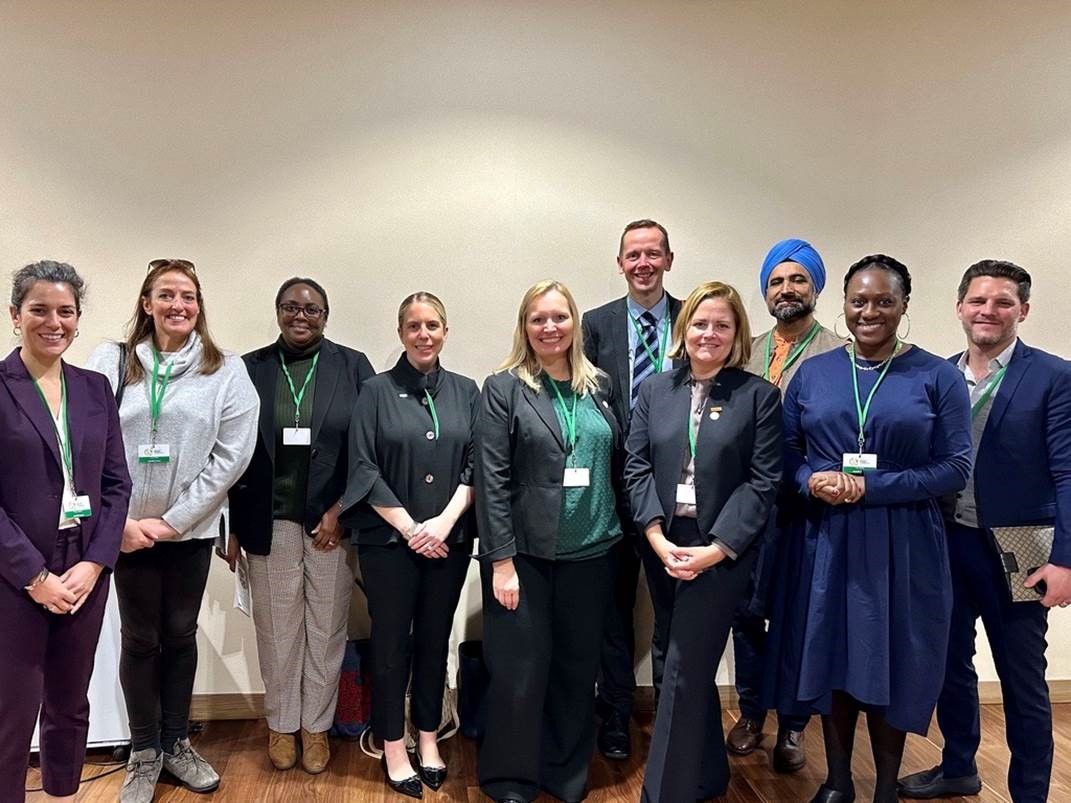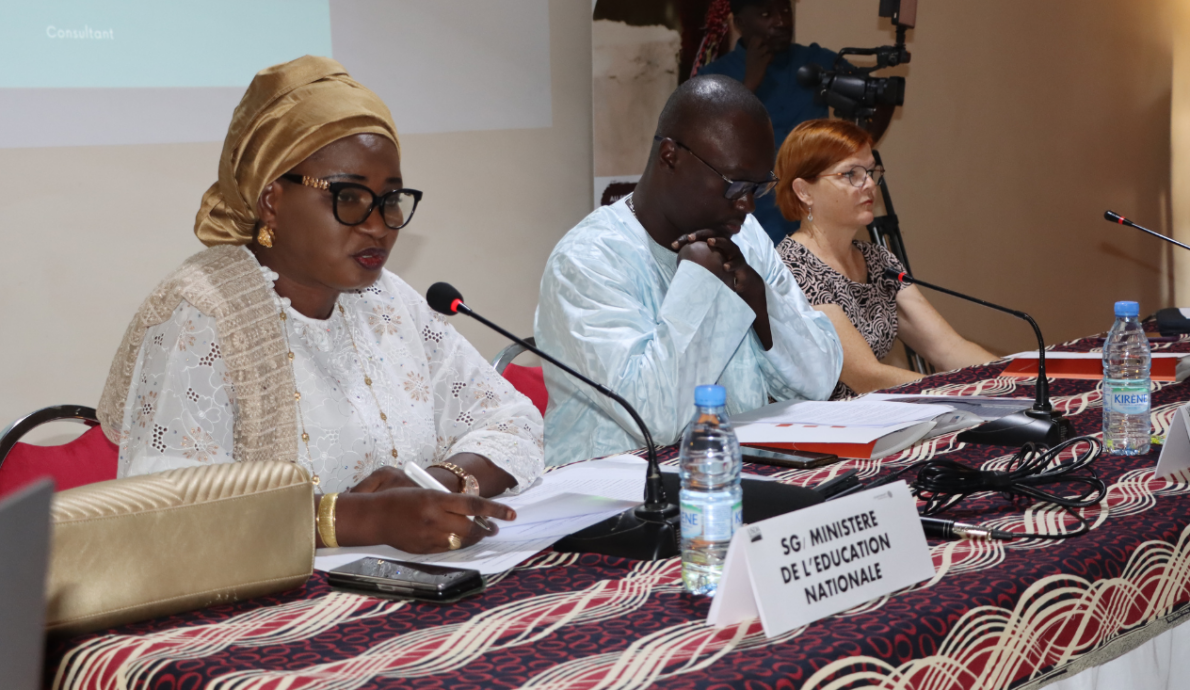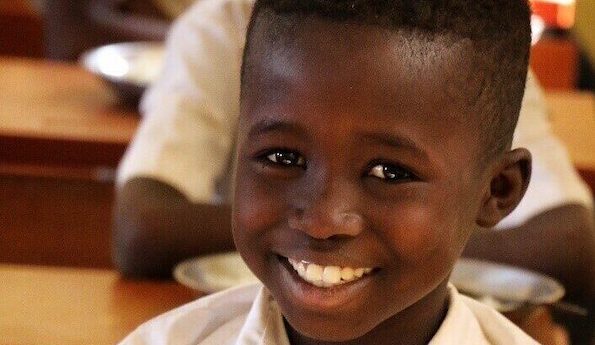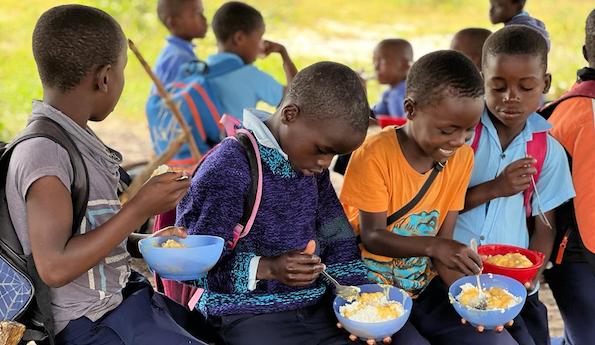This is part of a series of occasional dispatches by staff on issues related to our work.
Theresa Becchi is the associate director for Resilient Food Systems at Counterpart, where she oversees USDA McGovern-Dole Food for Education programming. She recently traveled to Paris to attend the School Meals Summit conference. The opinions expressed in this blog are the author’s and do not express the views or opinions of Counterpart.
It’s difficult to wake up in any corner of the world today and not feel a sense of despair. Take a look around, and we see the world has become a less secure place. The COVID-19 pandemic shook us to our collective core; it has left us—both at the individual and communal level—more stressed, scared, anxious, and discouraged. It has revealed real faults in our systems, gaps in our learning, and holes in our safety nets.
The global pandemic forced us all to see what happens when a system breaks down. Prior to 2020, the importance of school meals had been increasingly recognized. School meals programs support health, nutrition, and education interventions and contribute to Sustainable Development Goals and human and economic development. School meals combat hunger, poverty, malnutrition, keep kids in school and promote gender equity. School meals go beyond the school environment and support food systems transformation–promoting local production, diversification of diets, and sustainable eating habits. A recent World Food Programme report found that a dollar invested in school meals yields $9 back in social returns–healthy kids lead to healthy, productive adults. While school meals are not the only piece of the puzzle for addressing food insecurity, poverty, and conflict, they are a large piece of the puzzle–early interventions in feeding support the long-term success of any society.

Our associate director for Resilient Food Systems Theresa Becchi (left) traveled to Paris in October to attend the inaugural School Meals Coalition Global Summit.
By 2020, the global community had achieved historic progress, providing 388 million meals to children worldwide. Yet, the abrupt and long-term closure of schools because of the pandemic resulted in 370 million school children across the globe without access to a daily reliable meal. In the wake of the global pandemic, the School Meals Coalition was developed out of the 2021 UN Food Systems Summit to address the alarming impact of school closures and loss of school meal programs. The goal of the School Meals Coalition is to ensure that “every child has the opportunity to receive a healthy, nutritious daily meal in school by 2030.”
I attended the inaugural School Meals Coalition Global Summit October 18-19, 2023 amid a backdrop of a world stepping further into chaos. For two days, heads of states, ministers, local governments, development practitioners, civil society actors, and academia came together not to deny the chaos of the world, but to find clarity in the global chaos.
The School Meals Coalition is a collective action at its best—it is a network-based, strategic approach to coalesce countries and its stakeholders around one tangible, impactful, and solvable issue. And we’ve made progress. Currently there are over 90 member countries, and hundreds of partner entities engaged in the coalition. The Coalition’s initiatives include a Research Consortium for School Health & Nutrition to coordinate data, evidence, and research to support advocacy and programming needs; a Sustainable Financing Initiative to promote donor coordination, innovative financing and private sector engagement; Data and Monitoring Initiative to provide reliable reporting, monitoring, and evaluation to support accountability and transparency of school meals programming; and a Peer-to-Peer Community of Best Practice to share lessons learned, build networks, and strengthen accountability. According to the School Meals Coalition, 418 million more children now have access to school meals. The financial investment of school meals in low-income countries has increased by 15% on the domestic level, which has created 4 million jobs, mostly for women.
As a member of the School Meals Coalition, Counterpart is committed to being a leading voice for civil society and ensuring we work with our partner governments to implement sustainable, home-grown school feeding programs. Through our USDA McGovern-Dole Food for Education programs in Mauritania, Mozambique, and Senegal, we have fed 21.5 million students in 2022 alone. As a catalyst for change, Counterpart works together to support our partner governments and local communities understand the importance of education, build their capacity to implement sustainable school meals programs, and prioritize the inclusion of school feeding in their national budgets.
The School Meals Coalitions’ first Global Summit comes at a pivotal time in the world—it reminds us that in periods of darkness, there are glimpses of light. Counterpart firmly believes that providing a healthy, nutritious meal to a child is something we can all rally behind. We all deserve a place at the table, and we all deserve a warm, healthy meal waiting for us at that table. It is a moral obligation to feed our future, it is a duty we are committed to and excited to support our partner governments in achieving. Yes, there are challenges ahead—funding, climate change, politics, to name a few—but we are on the road to restoring, reaching, and improving the outcomes for future generations one meal at a time and Counterpart is committed to supporting the Coalition realize these outcomes together.






